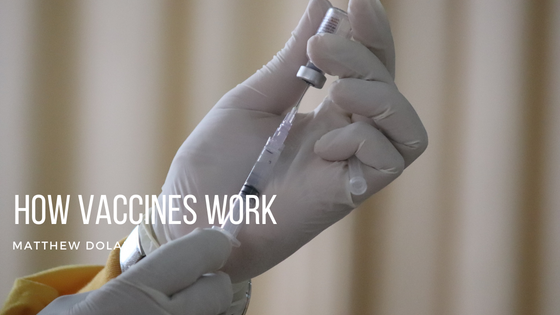Vaccines are designed to help your body fight illness. Bacteria and viruses enter the body, and they invade your cells. Then they multiply, causing your illness. Your immune system fights illness with white blood cells including macrophages, B-lymphocytes, and T-lymphocytes.
They all work to identify the virus, produce antibodies to attack it, and neutralize the virus. They also memorize the virus so that they can protect you in the future.
How Do Vaccines Help?
When you get a vaccine, it mimics the infection. It doesn’t make you sick, but it does cause an immune response where your system produces antibodies and T-lymphocytes. You may have mild symptoms as your body builds immunity, such as a fever. Your body ends up with a memory of the virus and how to fight it.
Different Types of Vaccines
There are five main types of vaccines that are selected based on the type of infection that scientists want to prevent.
- Live, Attenuated Vaccines
This type of vaccine contains a weakened version of the live virus or bacteria. It doesn’t cause severe disease, and it is as close to a natural infection as you can get. Your body reacts to this vaccine as if it has had the virus or bacteria, and it builds antibodies.
However, it isn’t a good choice for people with weakened immune systems. This type of vaccine is used for the measles, mumps, and rubella vaccine and the chickenpox vaccine.
- Inactivated Vaccines
This type of vaccine has an inactive version of the virus or bacteria, and it allows your body to produce an immune response. One example is the polio vaccine. It is often necessary to have more than one dose to build up immunity.
- Toxoid Vaccines
Toxoid vaccines are designed to prevent diseases caused by bacteria that produce toxins in your body. It teaches your body how to fight the natural toxin if you are exposed to it.
- Subunit Vaccines
The subunit vaccines include parts of the virus or bacteria, which include the essential antigens. Pertussis is an example of this type of vaccine.
- Conjugate Vaccines
These vaccines fight bacteria with antigens that have an outer coating of polysaccharides. They help an immature immune system learn how to develop an immune response. It is used for the Hib vaccine.
